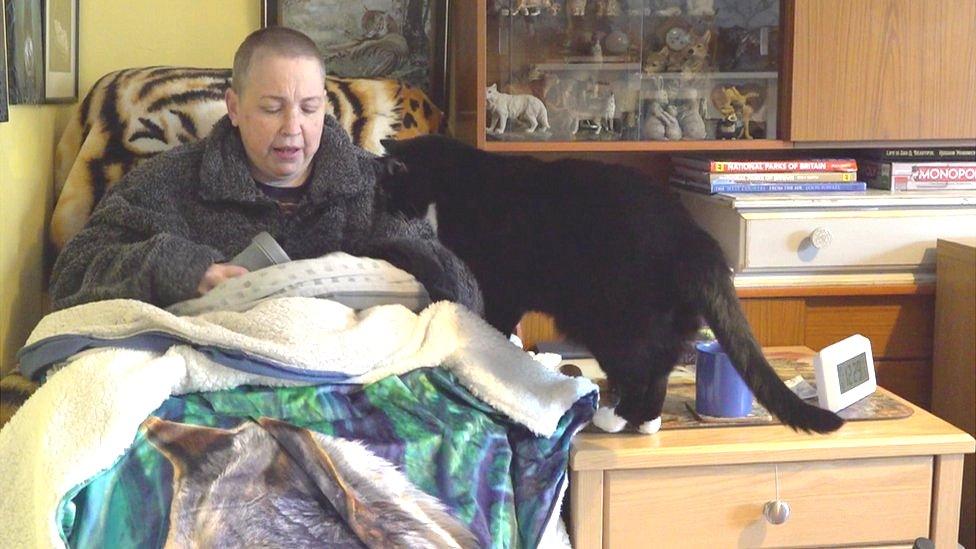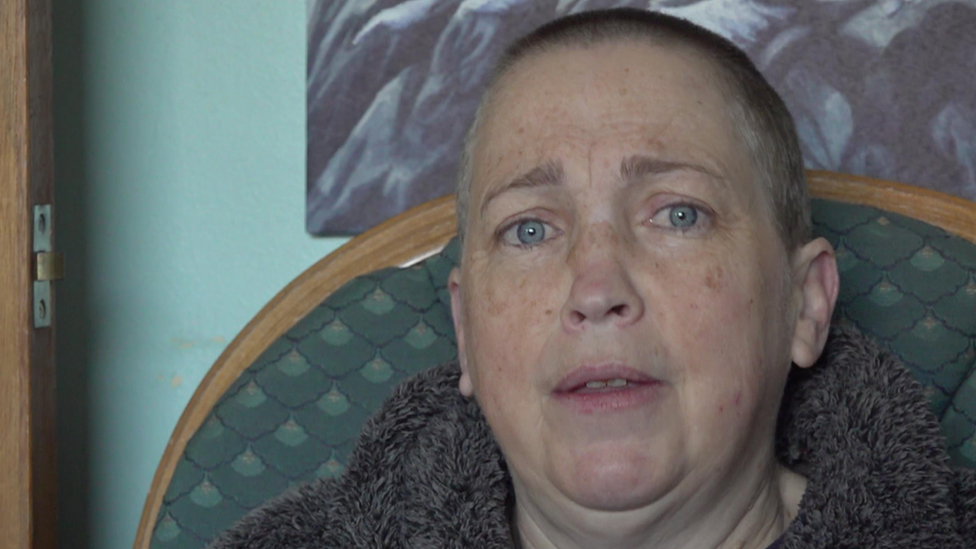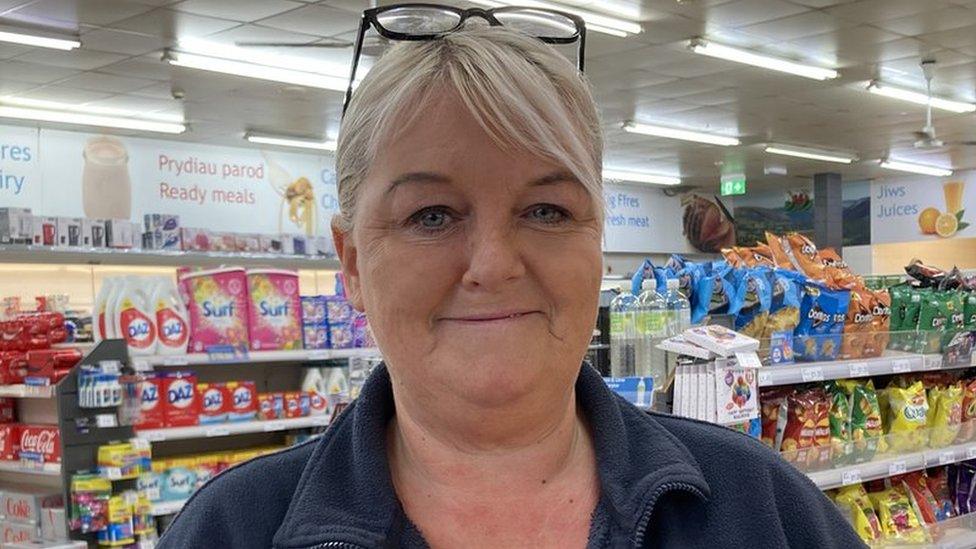Cost of living: Woman puts cat down jumper to keep warm
- Published

Sharon Hearn and her cat Toby often try to keep warm together
A disabled woman who cannot afford to heat her home for more than two hours a day said she puts her cat down her jumper to keep warm.
Sharon Hearn has been told she can no longer claim winter fuel bill discount despite the cold limiting her mobility.
She said even during December's cold spell her home was only heated to 10-12C (50-54F).
The UK government said Warm Home Discount changes prioritise those most likely to struggle to heat their homes.
Households are eligible if they are either on pension credit guarantee, a means-tested benefit or on tax credits with an income below a certain threshold.
Charity Scope estimates about 300,000 disabled people in Wales and England will not be eligible because of the changes.
Ms Hearn, 50, from Newtown, Powys, is a part-time wheelchair user due to spinal cord damage, rheumatoid arthritis and a brain injury.
"People in my condition do feel the cold a lot more," she said.
"Sitting in these conditions is making my arthritis worse and making my joints worse, and making my mobility worse.
"At night and during the day, normally I have three to four blankets on.
"I normally have two jumpers on, two socks on and I'm very lucky to have a cat. Because he's cold I put him down my jumper and we sort of warm each other up."

Sharon Hearn has been left wondering how she will afford to pay for her electricity
Her council house has an air source heat pump which takes warmth from the air outside to heat the home inside, but costs £8 per day to run.
"Two hours, that's all I can afford," Ms Hearn said. "I tend to get to hypothermic stage, end of November beginning of December.
"I will then be forced to put it on two hours a day, and even by March or April, I'm having bills of five, six, seven hundred pounds.
"If that's the case, if I have it on 24 hours a day, then how much is that going to equate to?"
Ms Hearn said she was told by the Warm Home Discount (WHD) helpline she was no longer eligible because her bungalow has a D-rating on its energy performance certificate.
But the UK government's Department for Business, Energy and Industrial Strategy disputed this, saying the WHD is not "awarded according to the energy efficiency of the property but on people's financial circumstances".
A spokesman added: "We are prioritising households most in need this winter, with over three million homes across Great Britain receiving an additional £150 energy bill discount through the Warm Home Discount.
"This will mean an extra 780,000 pensioners and low-income families will benefit this year compared to last."
Alex Osborne, from Disability Wales, said the WHD "was just a little bit of breathing space for disabled people".
"Not having the heating on 24/7 in their homes can make them really very ill," she added.
"So they're having to either take the risk they're going to get seriously ill by turning it off, or have it on and wonder how they're going to be able to afford the bills."

How are you coping with the rising cost of living? Share your experiences by emailing haveyoursay@bbc.co.uk, external.
Please include a contact number if you are willing to speak to a BBC journalist. You can also get in touch in the following ways:
WhatsApp: +44 7756 165803
Tweet: @BBC_HaveYourSay, external
Please read our terms & conditions and privacy policy
If you are reading this page and can't see the form you will need to visit the mobile version of the BBC website to submit your question or comment or you can email us at HaveYourSay@bbc.co.uk, external. Please include your name, age and location with any submission.



BBC WALES INVESTIGATES: The subjects affecting the lives of people in Wales
A CAREER CHANGE WITH A DIFFERENCE: Police new recruits adapt to life on the beat

Related topics
- Published14 December 2022

- Published16 November 2022

- Published12 October 2022
